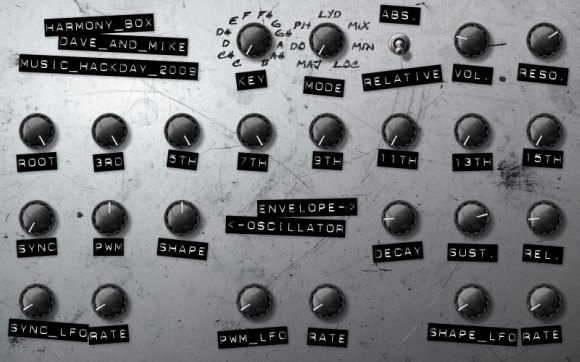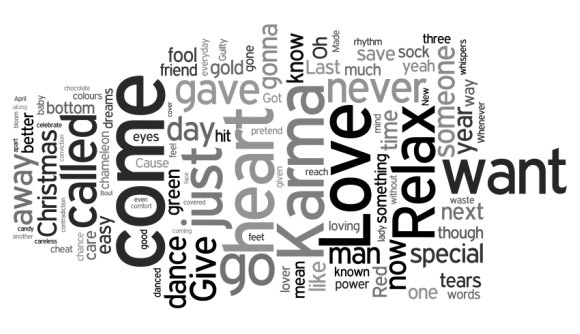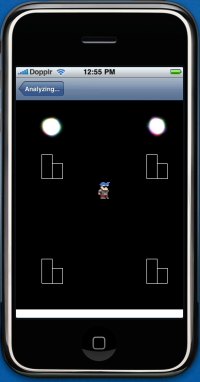The Music Bore – Video 2 from Nicholas Humfrey on Vimeo.
“I’m sorry, Dave, I can’t allow you to listen to Coldplay.”
What would radio be like if playlists were not only robotic, but had robot DJs pulling information from the Interwebs dynamically? That’s the question asked by the winning team at London’s Music Hackday last weekend, which created an epic mashup of data sources to produce a voice-synthesized IRC chatbot that researches and plays music for you.
Music Bore was just one of a number of projects developed in the weekend of musical hacking, some for listening, and at least one (a fantastic and free synth plug-in) for what we really like – production. With some of the world’s top musical coders in attendance, the results were amazing, even if not all projects were entirely finished. (Hey, that’s why they call it hacking.)
You can check out the full list on the wiki, but here are some favorites — and if you were there, do shout out to us as you put more documentation up of the event and projects.

Harmony Box by Dave and Mike is a synth plug-in for Mac (AU/VST) and Windows (VST, thus also Linux) that quickly creates lovely chords. I love the simplicity of the instrument – really lovely work, gents – and I think I may actually use it on a project. They accept donations if you’d like to see this instrument mature. Of course, with everyone else doing Web mash-ups, this didn’t win, but it’s more up our alley. (Web 2.0 – meh, whatever.)
The synth has its own project blog:
http://davenoise.com/blog/
Other winners (in our book, and as recommended by Harmony Box co-creator Dave Gamble):
LonelyHarps by Jamie Hollingworth and David Padbury is a Last.fm-based tool concept that helps you find dates – and choose the right tracks to set the mood – using music for compatibility. And, really, do you really want to date someone who doesn’t have musically compatible tastes? (I’m sure it’s just because they spotted lots of hotties on Last.fm, but…) The only bad news: the app didn’t actually get fully made yet, but we’ll stay tuned, gents. They do have impressive-looking formulas.

Music Zeitgeist by Cristiano Betta visualizes lyrics by decade, such as the 1980s, above. (Yeah, it was all about wanting and karma, the 80s.) Check out the project directly.
Theremag by Jono Cole and Jonty Wareing of Last.fm is actually the app I most want to see, but there’s no documentation yet. It’s a Theremin emulator on the Google Android-based HTC G1, with an unusual sensor — the built-in magnetometer (the one that normally acts as the compass) which was used to pitch-bend Michael Jackson. Once they get documentation up, expect to see it here. (I love that magnet sensor, too. Good fun.)
 iPhone Music Visualizer by George J Cook and Matt Biddulph grabs Soundcloud files, analyzes them with Echonest (which recently got an iPhone-friendly Cocoa API), and then plays them back with a visualizer. It looks like a great place to get started if you’re planning on building something similar yourself.
iPhone Music Visualizer by George J Cook and Matt Biddulph grabs Soundcloud files, analyzes them with Echonest (which recently got an iPhone-friendly Cocoa API), and then plays them back with a visualizer. It looks like a great place to get started if you’re planning on building something similar yourself.
In fact, it’s well worth checking out the wiki not only because some of the projects have (okay, sometimes-sloppy) source code, but point you at the resources you’d need to tackle something like this yourself if you’re a coder. And the event prompted a lot of folks from Last.fm to Echonest and BBC and others to get their APIs together.
It’s a terrific idea, and it sounds like we need another music hackday here. (Press releases, ahem, claimed this was the “first” music hackday, even though we’ve done a global event ourselves, but who cares — let’s do more!)
New York would make a nice base of operations for a similar event because a lot of folks with interesting APIs are here (or in nearby East Coast towns), but I think it’d be great to get more people online and not just in one locale.
What think you, sirs and madames? Tips on how we could make an online event work?